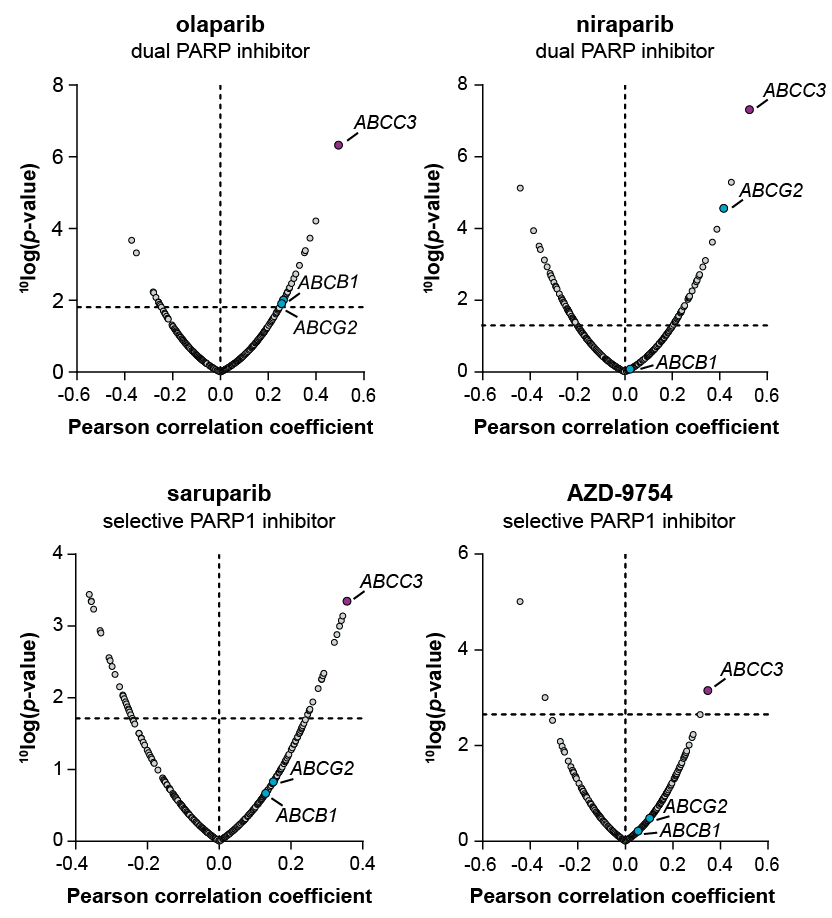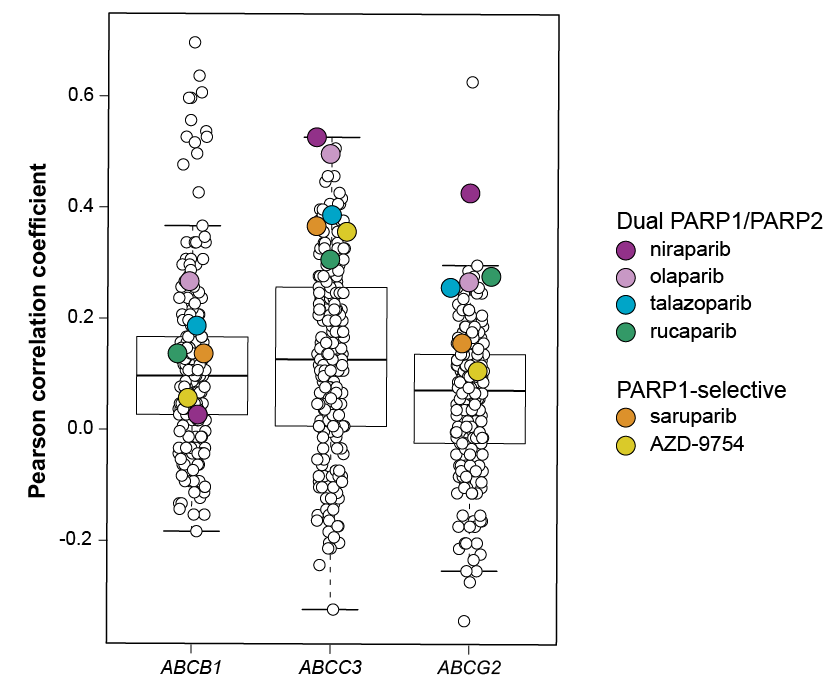Drug transporters are transmembrane proteins with the ability to transport drugs out of the cell, thereby decreasing intracellular drug concentration and causing resistance. ATP-binding cassette (ABC) transporters have previously been described to be involved in drug resistance against the poly(ADP-ribose) polymerase (PARP) inhibitor olaparib.1
ABC transporters may be involved in drug resistance against other PARP inhibitors as well, which can be investigated through correlation analysis of ABC transporter gene expression data with the cell panel profiling results of PARP inhibitors.
Four dual PARP1/PARP2 and two selective PARP1 inhibitors were profiled on the Oncolines® cancer cell line panel to determine half-maximal inhibitory concentration (IC50) values. These data were correlated with basal gene expression levels in the same cell lines of 420 genes known to be involved in drug resistance,2 including several drug transporters.
The multi-drug resistance transporter gene ABCC3 shows a significant positive correlation with PARP inhibitor IC50 values across the cell lines (Figure 1), suggesting that high gene expression of ABCC3 correlates with PARP inhibitor resistance (i.e., high IC50). In contrast, this is not consistently observed for the previously described drug resistance transporters ABCB1 (P-gp) and ABCG2 (BCRP) (Figure 1).
For the selective PARP1 inhibitors, gene expression of both ABCB1 and ABCG2 was not significantly correlated with cell line resistance (Figure 1). This suggests that, unlike for the dual PARP inhibitors, both of these transporters are less likely to cause resistance.
Comparing the correlations of ABCB1 gene expression and cell line sensitivity of the PARP inhibitors with those of more than 200 reference compounds reveals that a positive correlation with ABCB1 gene expression is not uncommon for anticancer agents (Figure 2). The positive correlations of ABCG2 and ABCC3 expression with PARP inhibitor cell line sensitivity are more unique (Figure 2).
References
1. Shen and Yan (2010) Systematic prediction of drug resistance caused by transporter genes in cancer cells. Scientific Reports 11, 7400.
2. Cotto et al. (2018) DGIdb 3.0: a redesign and expansion of the drug-gene interaction database. Nucleic Acids Research 46, D1068–1073.



